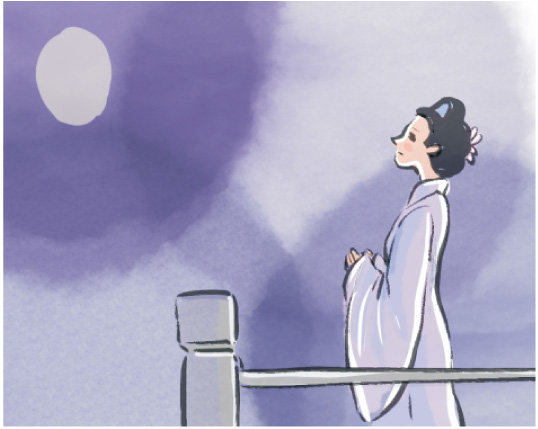Endless yearnings
Endless yearnings
Posted September. 23, 2022 07:50,
Updated September. 23, 2022 07:50
Wandering on the stepping stone until deep into the night, a lady notices her beoseon socks get soggy due to dews. Even coming back to her room and closing crystal bead curtains, she cannot take her eyes off the glistening moonlight through the crystals. It is only a series of simple actions, from closing the bead curtains to looking up to the moon on the path from the stepping stone to the room. However, a poetically sophisticated lens of the author portrays what lingers in the lady’s mind.
On a dewy night, she has long waited for someone to come over to her place but has only been left disappointed to return to her room and pull down the bead curtains. She must have wanted to isolate herself from a deeply tranquil world. With the chill of autumn dews blocked, she must have hoped to end the heartbroken days of missing and longing for someone special. Nevertheless, the crystal-clear bead curtains are too transparent and glittering to protect her from the outside world. She may be left confused about what the moonlight, always in her sight, conveys to her-whether it consoles her broken heart flooded by endless yearnings or only amplifies her insomnia and regrets.
This poem written by Chinese poet Li Bai is presumed to have been inspired by “Moaning on Jade Stairs,” a piece of the poetic genre sajo, which he had long admired, from the Six Dynasties period in ancient China. “The bead curtains pulled down in the evening at the wooden pavilion, fireflies soaring up and sitting down again and again. Making silk clothes until deep into the night, my heart still whirled by yearning for you.” These romantic feelings delivered by a soft voice may not match Li Bai as we consider him a cool-hearted and manly figure. The phrase “Moaning on Jade Stairs” was more of a stereotypical title added to the poem depicting a woman left with heartfelt yearnings or desires. Following the Han Dynasty, it was widely used and added to other poems by some authors as well.







